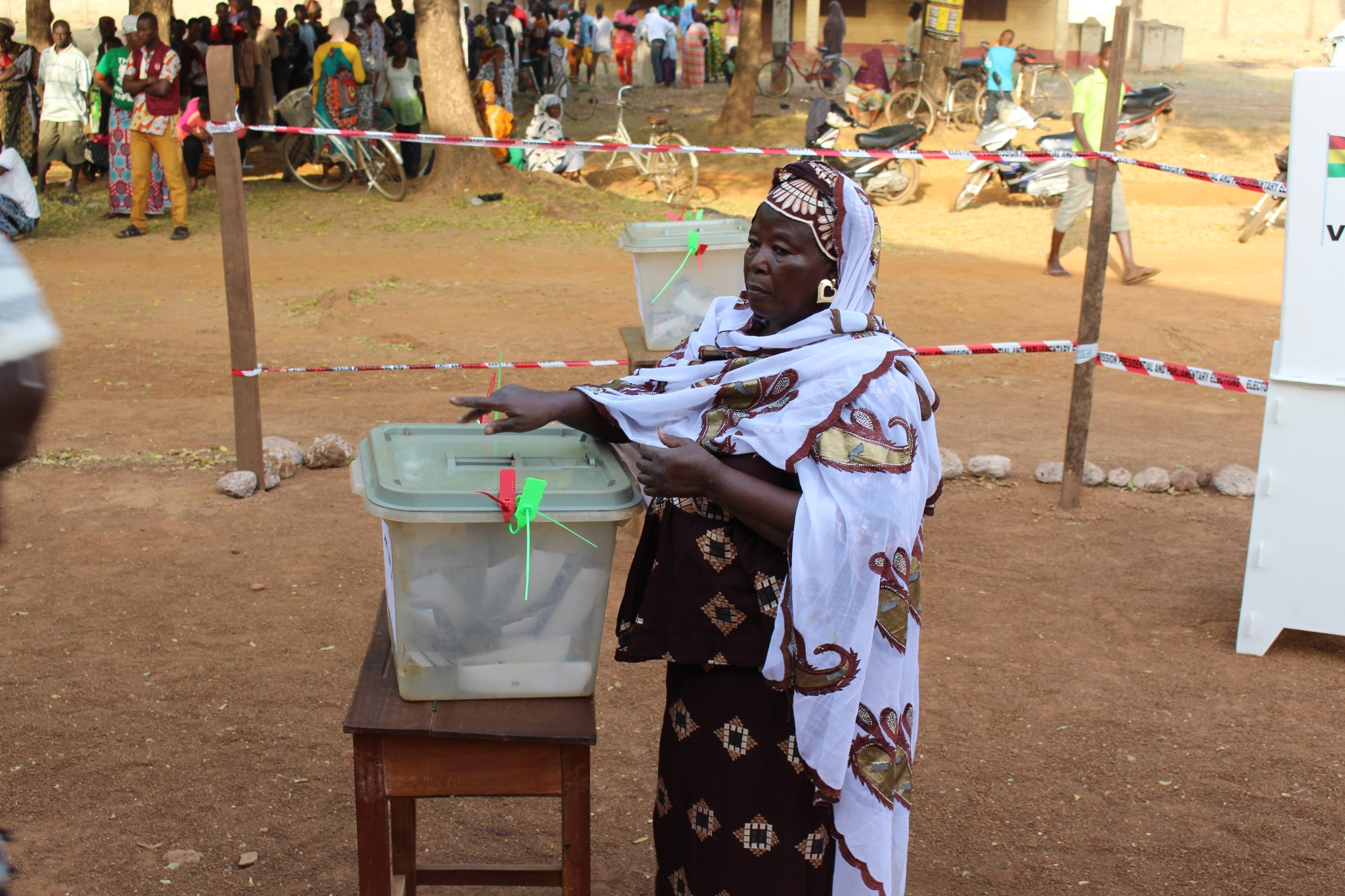Can Women Achieve Equal Political Representation in Ghana?

Convened by IRI, Ghanaian national and regional women political party leaders will gather in Accra, Ghana on August 17 and 18 to discuss the barriers to women’s full participation in political parties.
Despite Ghana’s strong democratic progress over the past two decades, it has fallen short of achieving equal representation for women in politics. IRI’s party exchanges aim to address this ongoing gap in democratic progress and to build momentum for political parties to improve women’s inclusion in decision making processes ahead of the next electoral cycle.
At the conference, IRI will share the results from focus group discussions held with women members of political parties conducted in Accra, Kumasi and Tamale earlier this year. The two-day conference will be followed by intra-party dialogues for each of the leading Ghanaian political parties wherein women leaders will use information from the sessions to develop strategies for increasing their political participation ahead of the 2020 elections.
In the lead up to the 2016 elections, major political parties in Ghana regressed in their commitment to improving gender equality, a fact confirmed by IRI’s 2016 gender assessment. For example, the National Democratic Congress (NDC) failed to reserve 40 percent of its parliamentary candidates for women, despite commitments to meet that threshold. In addition, the New Patriotic Party (NPP) openly revoked an internal affirmative action principle after executives believed that the principle would hurt its chances of winning. And, despite Ghana ratifying the Maputo Protocol in 2007, only 13.45 percent of the current Parliament members are women.
There are also few prospects for women’s leadership within Ghanaian political parties. Women’s wings of political parties are activated before election day to mobilize voters, but their roles generally do not go beyond the grassroots level or necessarily carry decision making authority. Many parties also designate internal positions (commonly referred to as the National Women’s Organizer and Deputy National Women’s Organizer) for developing outreach strategies and gaining more women voters and members for the party, but these positions are generally underfunded or sometimes not funded at all. In the recently concluded NPP delegate conference for electing party executives, only two women took up positions (one of them being the National Women’s Organizer). Systematically including women in party leadership has the potential to strengthen the party and broaden its base. If parties do not realize that, the outlook for women’s political representation in Ghana is bleak.
As a longtime gender advocate, Executive Director of the Gender Centre for Empowering Development and new member of IRI’s Women’s Democracy Network, I believe that IRI’s women’s multi-party strategy conference and intra-party dialogues for women political leaders are as important as they are timely and address a critical need in Ghana. Political parties will soon be holding primaries and these party exchanges could inform needed reforms to mainstream gender into campaign plans and party policies. I look forward to discussions that will encourage political parties to develop women-centered platforms or manifestoes that reflect women’s priorities.
By organizing the conference well before the electoral period starts, the exchanges will allow for open and honest discussions among political party leaders about the challenges that women face without the distraction of campaigns. It could also give political party leaders time to implement the recommendations issued by their female members and actively include them in decision-making processes as they prepare for elections.
With my experience as a student activist within one of the major political parties and also advocating for women’s rights in Ghana for over 11 years, I believe forums like these are crucial to the struggle of overcoming barriers that women face in politics. They help build consensus and provide a rare opportunity for women within political parties (many located in distant regions throughout Ghana) to strategically work together for a common cause. Forums such as IRI’s also have the capability to encourage women to run for office and vie for positions within their respective parties. Should this be the case after the IRI-organized dialogues, women’s inclusion in politics and representation in government could increase in the next electoral cycle.
Top